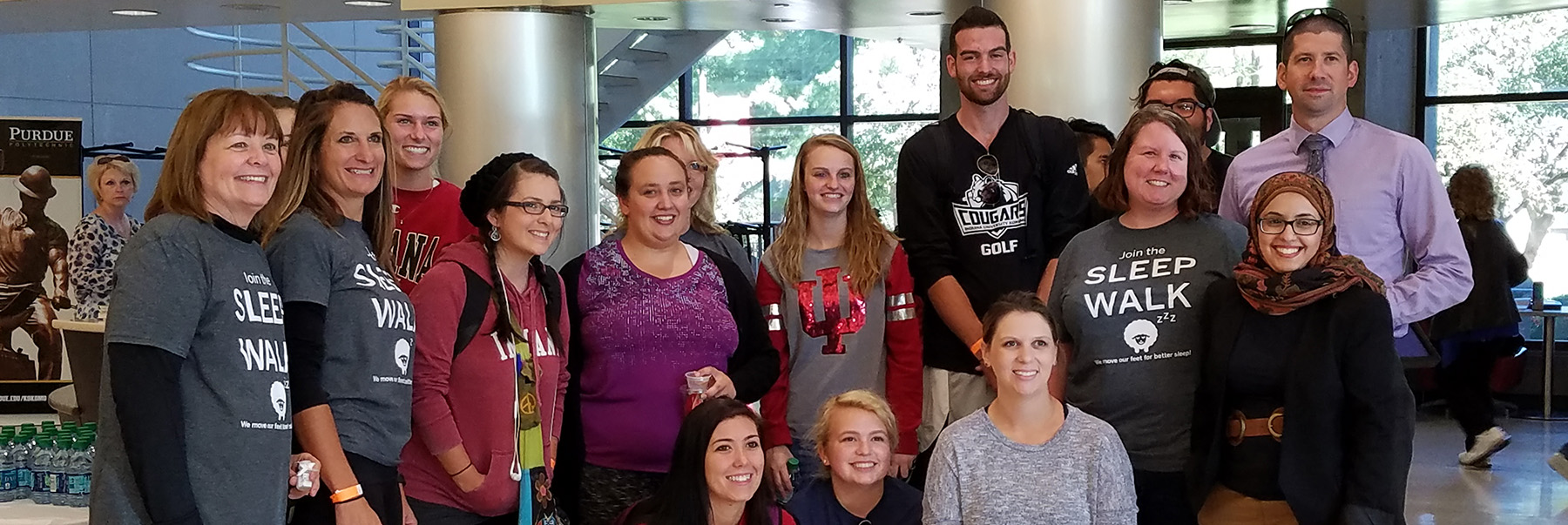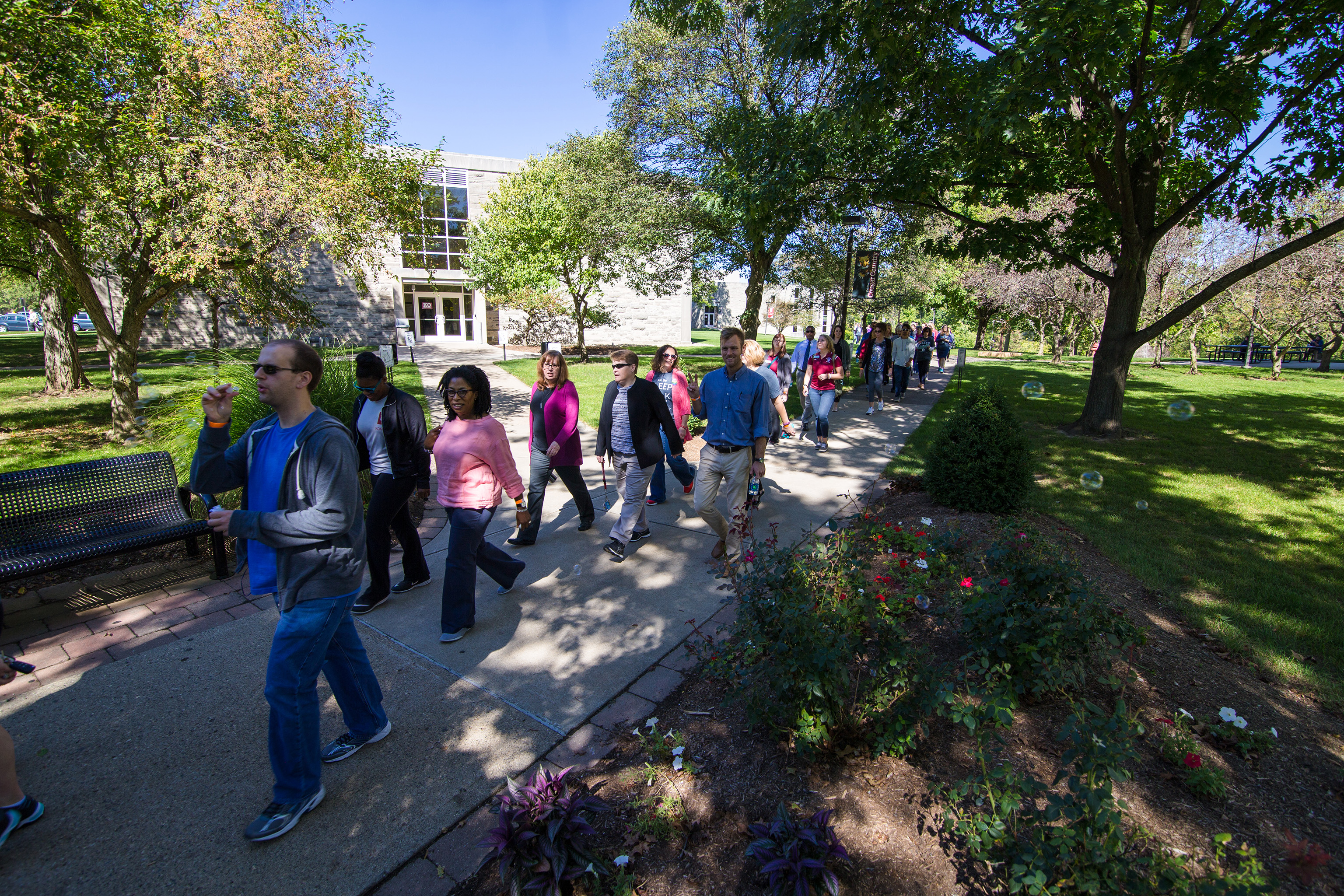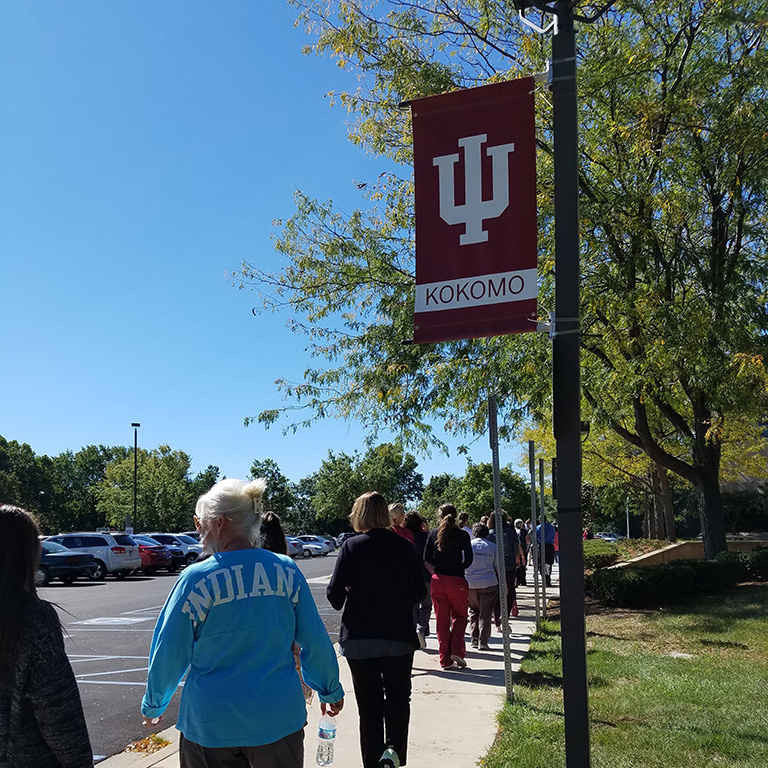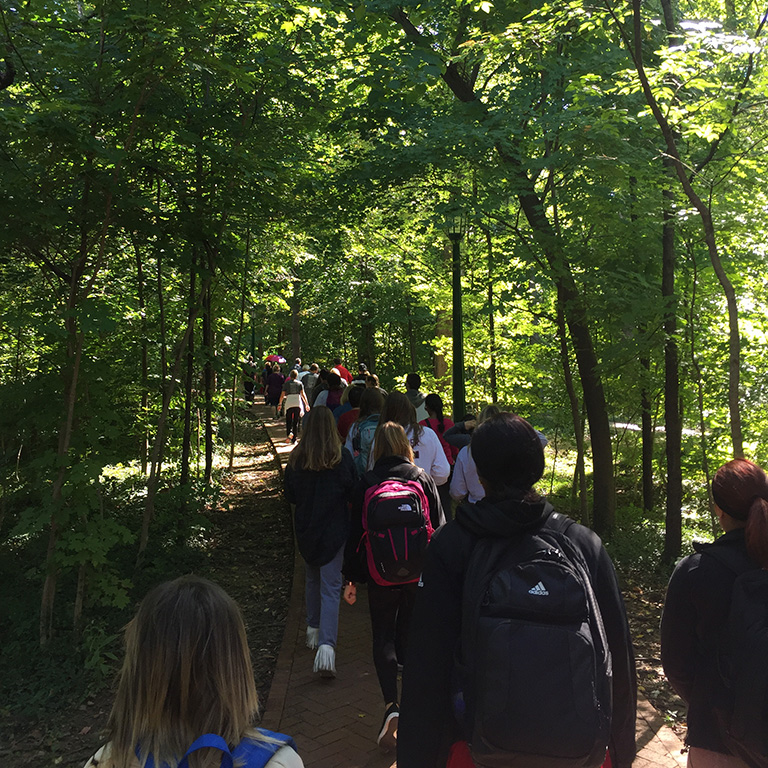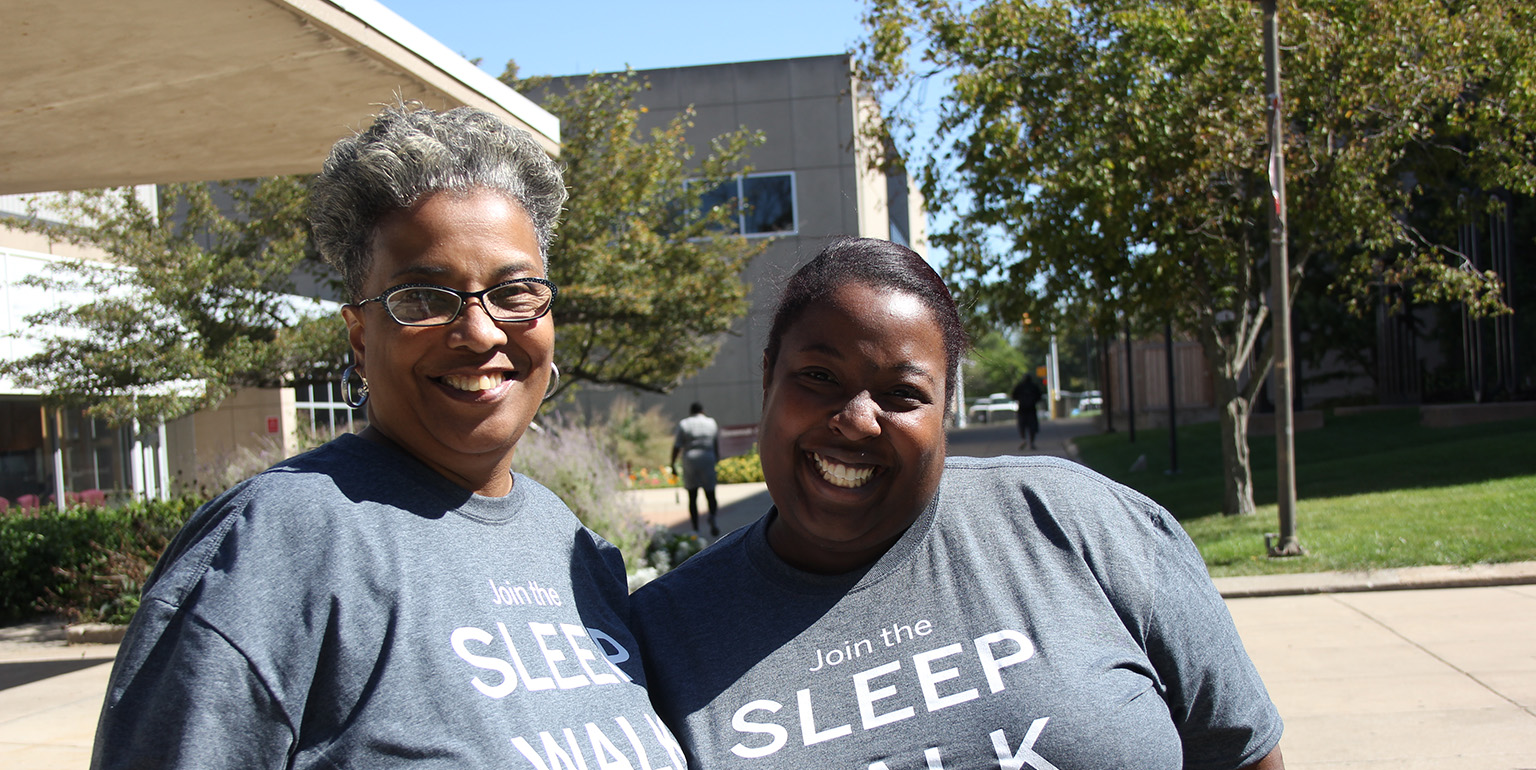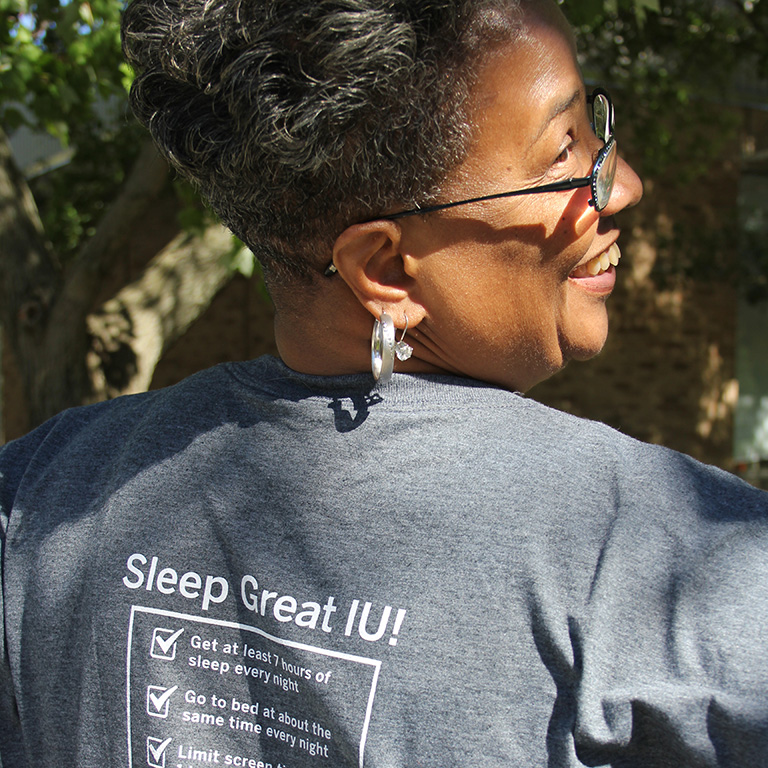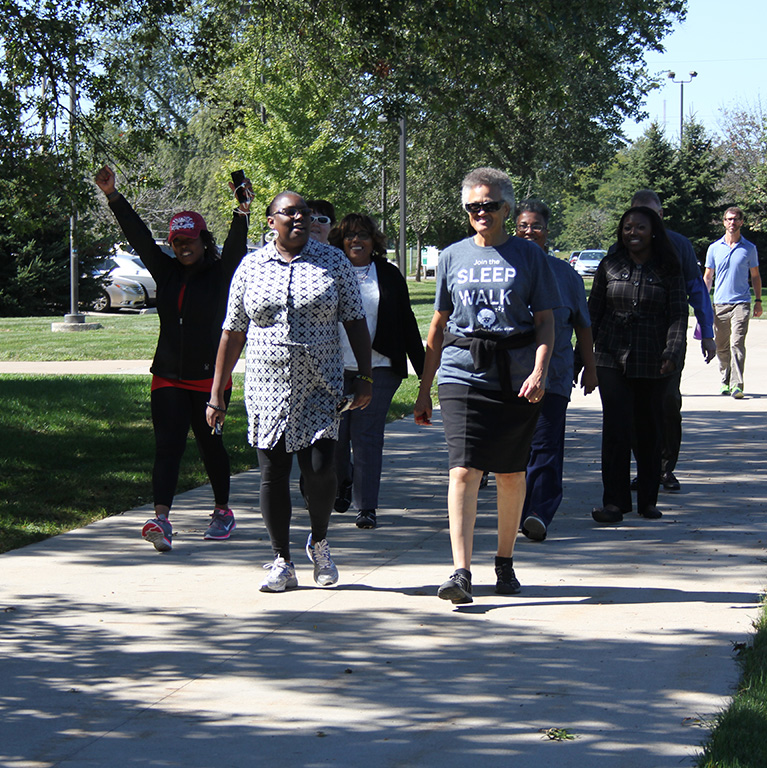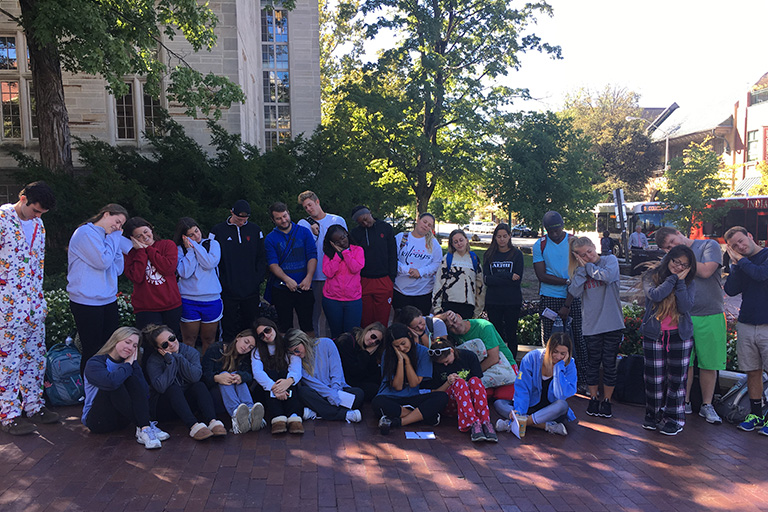Getting quality sleep can be hard for those who work nights. But after twenty-five years of shift work at IU, and six years of military service, IU Bloomington retiree Robert Griffin has a routine that works for him. As a custodian who works third shift, “you have to learn how to adapt,” he says.
Griffin’s experience with working nights began as a Boatswain’s Mate in the Navy. “We would have to keep watch at night, and I would be awake for a four-hour shift starting at 11:45 p.m.,” he remembers. Working nights often means juggling social demands of friends and family who are on a daytime work schedule, while also trying to eliminate factors like sunlight or traffic noise.
But Griffin has learned what helps him sleep best. “I keep my bedroom pitch black by using blinds, curtains, and boards over the windows. The only light that gets in actually just looks like a nightlight,” he says. He also uses a fan to help drown out the cars driving on the busy street near his house. And, importantly, “friends and family know my hours, and they know not to call me while I’m sleeping.”
He’s also found a sleep routine that helps him unwind and get to sleep quickly after work. “I get home around 6:30 a.m., relax, and maybe even grab something to eat before being in bed by 7:30 a.m. Then I’ll wake up about 2:30 p.m., which gives me some free time before heading back to work around 9:00 p.m.,” says Griffin. This schedule allows him to take care of everyday errands and, importantly, spend time with family and friends.
Griffin participated in Healthy IU’s “Sleep Great IU!” Challenge, and was pleasantly surprised to pick up another healthy sleep habit: avoiding blue light (from devices such as phones, televisions, and computers) in the hour before he went to sleep. Learn how blue light affects sleep here. “I noticed that after looking at my phone, I’d close my eyes and still see the blue light. So I’ve made more of an effort to not look at my phone before bedtime,” he says.
Interestingly, while night shift workers face unique challenges to getting restful sleep, both day shift and night shift workers reported similar levels of satisfaction with their sleep habits at the beginning of the “Sleep Great IU!” Challenge (65% and 61%, respectively). And after practicing the healthy sleep habits of the challenge, day shift and night shift workers reported similar levels of improvement (84% and 78%, respectively).
This speaks to the importance of a sleep routine, whether we work days or nights — one that fits our unique needs, the way that Griffin’s does. “Everyone can benefit from trying out healthy sleep habits, and sticking with the ones that work best,” he says.


